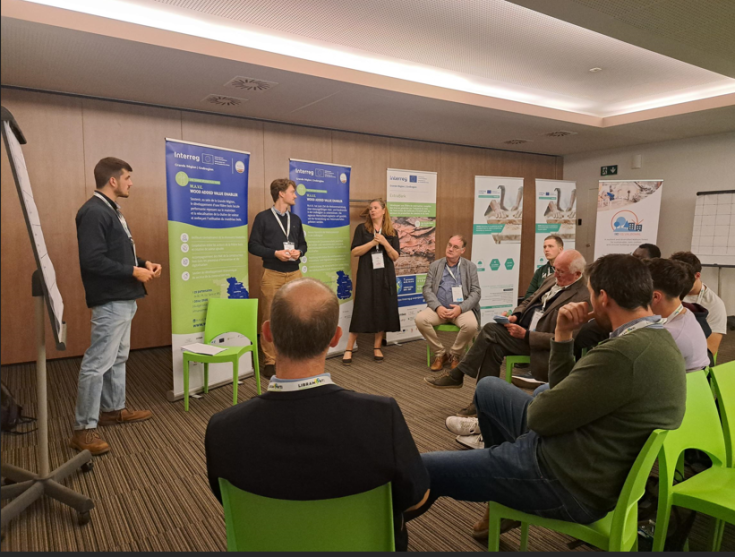Stakeholder Insights at Les Rencontres Filière Bois, Belgium

On April 15th, Filière Bois Wallonie brought together stakeholders from the forestry sector for its annual event, “Les Rencontres Filière Bois” (The Wood Sector Meetings). This year’s gathering focused on the very real challenges brought about by climate change and its impact on forests. Participants shared their experiences on topics like the evolution of forest stands, the economic implications of mixed-species forestry, and the various ways businesses are adapting to these changes.
An important highlight of the day was a workshop dedicated to exploring opportunities for accessing European funding, specifically aimed at supporting companies’ investment and innovation projects. The session was built around the theme of boosting the competitiveness of SMEs in the forestry industry through clustering, internationalization, and innovation. Before diving into the discussions, Filière Bois Wallonie took the time to introduce the FBI4Eu project, outlining its partners and objectives, and provided insights into other Interreg projects in which it is engaged, such as Wood Added Value Enabler and Extrabark. Participants were also informed about funding opportunities under the Common Agricultural Policy.
To enrich the discussion, Filière Bois Wallonie invited several strategic partners—Valbowal, representing the Strategic Innovation Initiative in Wallonia; the National Contact Point (NCP) for Horizon Europe; and GreenWin, a competence cluster focused on green innovation—to share their insights on navigating European funding.
The conversations that followed revealed a range of challenges and expectations from participants. Many spoke of the difficulties they face in finding and understanding calls for projects, often citing a lack of visibility, poor knowledge of funding schemes, and challenges in identifying the right contacts. They expressed the need for clearer, more targeted information and better communication of who does what at regional, national, and European levels.
Timing was another key issue raised during the discussions. Participants noted that lengthy application processes and rigid project timelines often fail to align with the realities on the ground. They advocated for mechanisms that allow projects to mature properly and for rolling calls that could provide more flexibility.
When it came to building partnerships and consortia, concerns about partners withdrawing or not actively participating were prevalent. Participants stressed the importance of working with experienced coordinators and using regional contacts to identify reliable partners, noting that a collaborative approach often yields better results than going it alone.
Uncertainty around eligibility criteria also emerged as a barrier to participation. Some felt that criteria were often unclear at the start of the call and sometimes changed mid-process, leading to confusion and wasted effort. Participants called for criteria to be defined clearly from the outset and for consistent communication of any changes that might arise.
Lastly, the discussions turned to the thematic areas themselves. Many felt that the wood sector remains underrepresented in major programs like Horizon Europe and that there are too few calls tailored to its specific needs. Participants highlighted green chemistry, forest genetics, the bioeconomy, and innovation in the wood sector as key topics that deserve more attention, along with calls that connect the wood sector with the broader fields of environment and industry.
The event ended on a hopeful note, with a shared sense of commitment to addressing these challenges and working together to ensure that the wood sector can thrive in the face of a changing climate. The insights gathered during the workshop will help guide future actions to make funding more accessible and to empower businesses to seize the opportunities that European projects can offer.
